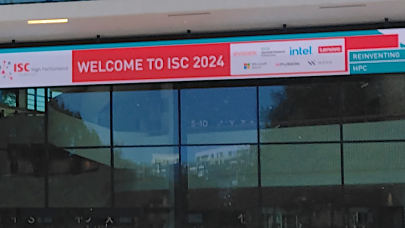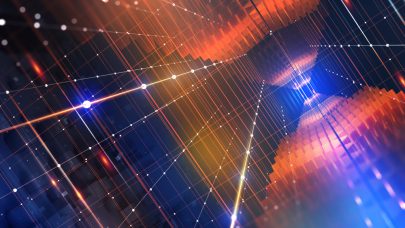March 25, 2018 — The PBio 2018 6th International Workshop on Parallelism in Bioinformatics has issued a call for papers. This is the 6th edition of this international workshop, the previous editions were organized as part of:
- LNCS ICA3PP 2017 (see PBio 2017 and the special issues in the Journal of Computational Biology and the International Journal of Parallel Programming).
- LNCS Euro-Par 2016 (see PBio 2016 and the special issue in the journal Cluster Computing).
- IEEE ISPA 2015 (see PBio 2015 and the special issue in the International Journal of High Performance Computing Applications).
- IEEE Cluster 2014 (see PBio 2014 and the special issue in the journal Concurrency and Computation: Practice and Experience).
- ACM EuroMPI 2013 (see PBio 2013 and the special issue in the journal Parallel Computing).
This year the sixth edition of this international workshop is organized as part of the prestigious conference EuroMPI 2018.
The PBio 2018 proceedings will be published by ACM Digital Library within its International Conference Proceedings Series (ICPS).
In Bioinformatics, one can find a variety of problems which are affected by huge processing times and memory/storage consumption, due to the large size of biological data sets and the inherent complexity of biological problems. In fact, Bioinformatics is one of the most exciting research areas in which Parallelism finds application. Successful examples are mpiBLAST, RAxML-HPC or ClustalW-MPI, among many others. In conclusion, Bioinformatics allows and encourages the application of many different parallelism-based technologies. The focus of this workshop is on parallel and distributed computing in bioinformatics, and consequently, we welcome any technique based on: multicore computing, cluster computing, supercomputing, cloud computing, grid computing, green computing, hardware accelerators as GPUs, FPGAs, etc.
Topics
The goal of PBio is therefore to bring together researchers in the fields of Parallelism and Bioinformatics, hence establishing a forum for discussing challenges, new ideas, results, applications, and future directions. In conclusion, the organizers seek original, high-quality research papers, clearly focused on the application of Parallelism to any possible Bioinformatics problem. In particular, contributions are solicited on, but are not limited to, the following topics:
- Parallel and distributed algorithms in Bioinformatics.
- Workload partitioning strategies in Bioinformatics.
- Memory-efficient algorithms in Bioinformatics.
- Parallel tools and applications in Bioinformatics.
- Data-intensive Bioinformatics (including Big Data storage and processing).
- Multicore computing in Bioinformatics.
- Multithreaded computing in Bioinformatics.
- Cluster computing in Bioinformatics.
- Supercomputing in Bioinformatics.
- Cloud/Grid/P2P computing in Bioinformatics.
- Volunteer computing in Bioinformatics.
- Hardware accelerators (GPUs, FPGAs, etc.) in Bioinformatics.
- Heterogeneous computing in Bioinformatics.
- Green computing in Bioinformatics.
- Mobile computing in Bioinformatics.
- Emerging parallel programming models in Bioinformatics.
- Parallel performance evaluation, analysis, and optimization in Bioinformatics.
- Parallel visualization, modelling, simulation, and exploration in Bioinformatics.
With regard to the Bioinformatics problems, many different alternatives exist: bioinformatics applied to biomedicine and drug design; biological sequence analysis, comparison and alignment; motif, gene and signal recognition/discovery; molecular evolution; phylogenetics and phylogenomics; determination or prediction of the structure of RNA and protein; DNA twisting and folding; gene expression and gene regulatory networks; deduction of metabolic pathways; microarray design and analysis; proteomics; functional genomics; molecular docking; design of DNA sequences for molecular computing; etc.
Paper submission, registration, and publication
Submitted papers must not substantially overlap with papers that have been published or that are simultaneously submitted to a journal or a conference with proceedings. Papers must be clearly presented in English and must be formatted according to the “sigconf” style in the ACM 2017 Template. Papers must not exceed 10 pages. This page limit includes figures, tables, and appendices, but does not include references, for which there is no page limit. Margins and font sizes should not be modified.
All papers need to be submitted electronically (in PDF format) through the EasyChair website: https://easychair.org/conferences/?conf=pbio2018.
All submitted papers will be peer-reviewed by PBio’s technical program committee. Papers will be selected based on their originality, technical soundness, timeliness, significance, relevance, presentation, and interest to the workshop attendees. Submission of a paper should be regarded as a commitment that, should the paper be accepted, at least one of the authors will register and attend the workshop to present the work. Complete sources must be provided for accepted papers. All accepted papers of registered authors will be included in the PBio 2018 proceedings published by ACM Digital Library within its International Conference Proceedings Series (ICPS). Authors of accepted papers will be required to submit an online ACM Copyright Form. Authors will be contacted by ACM requesting this information. The ISBN number assigned to PBio 2018 proceedings is 978-1-4503-6531-4.
Important dates
Paper Submission Deadline: 1 June 2018
Acceptation Notification: 26 June 2018
Camera-Ready and Registration: 23 July 2018
Workshop at EuroMPI 2018: 23 September 2018
Source: ARCO
























































